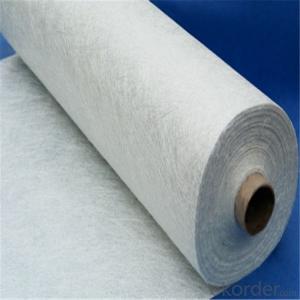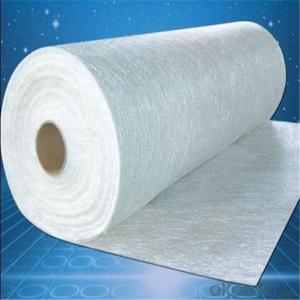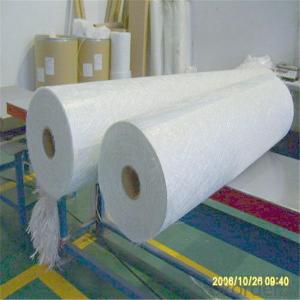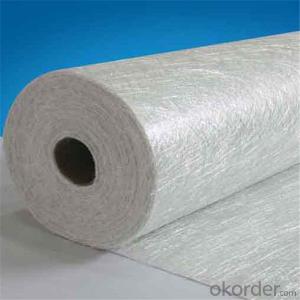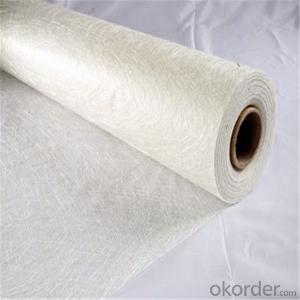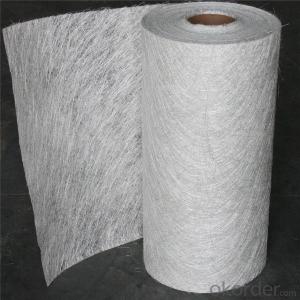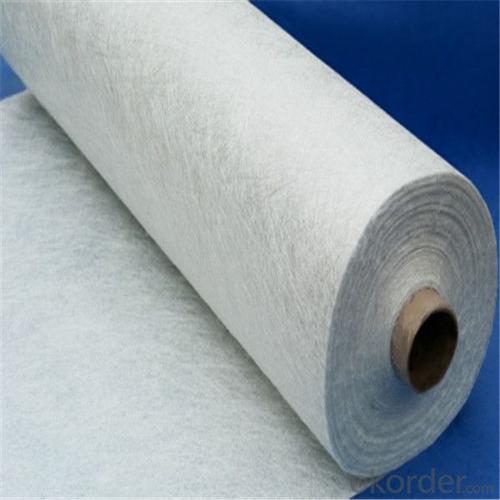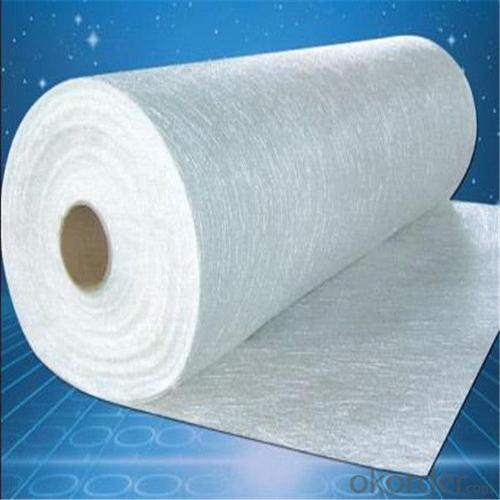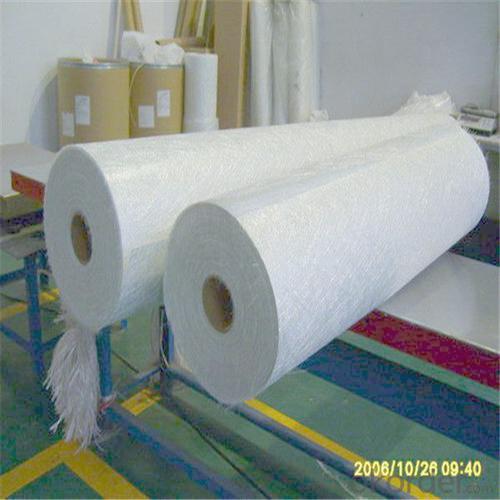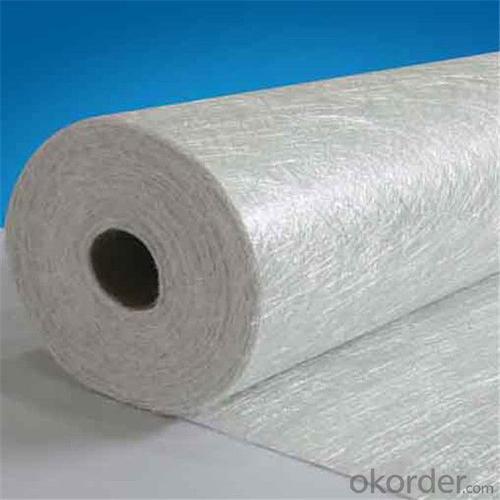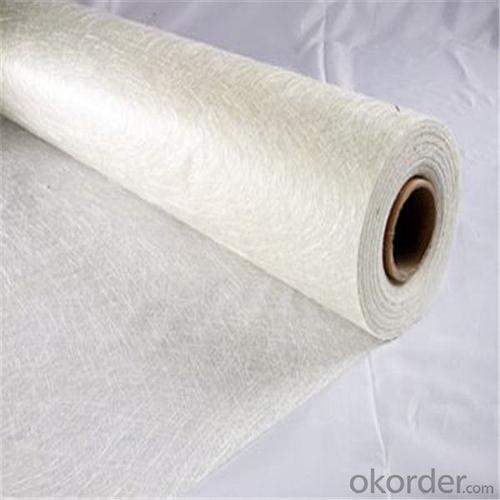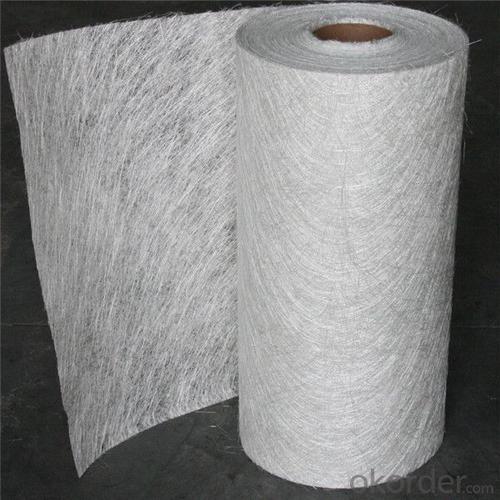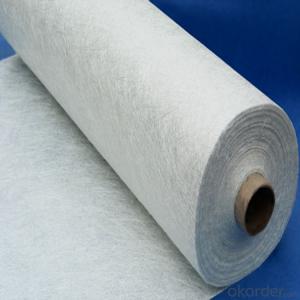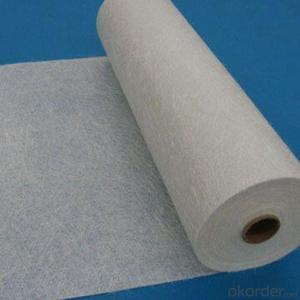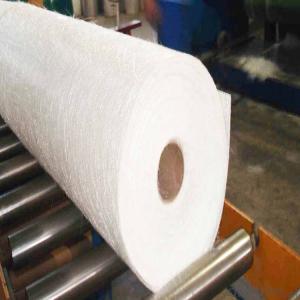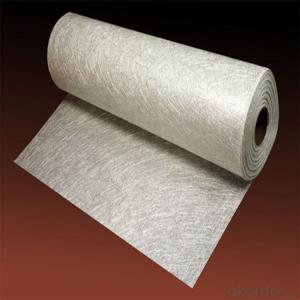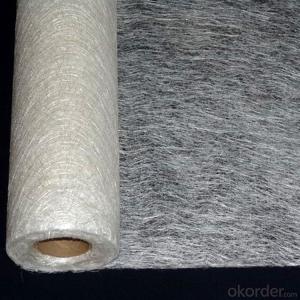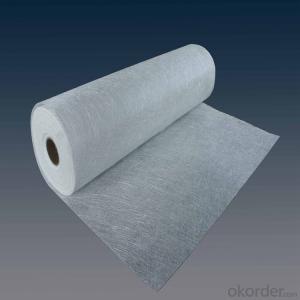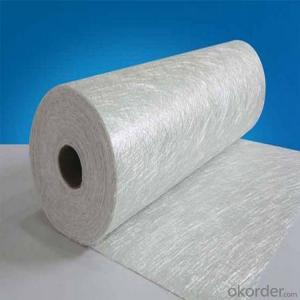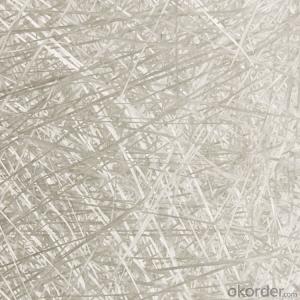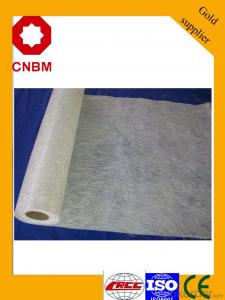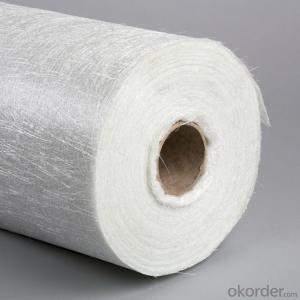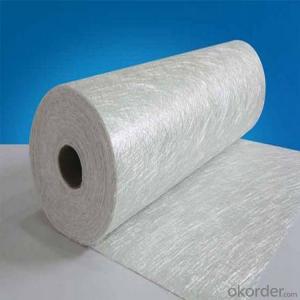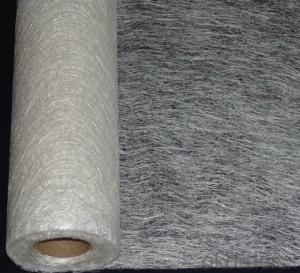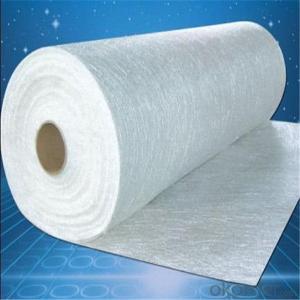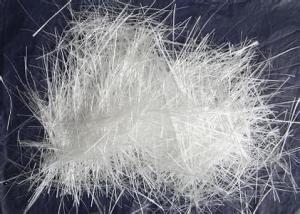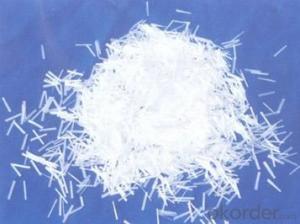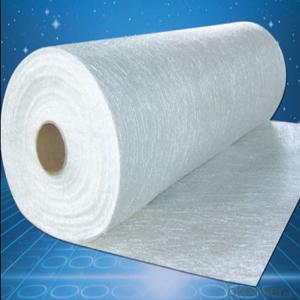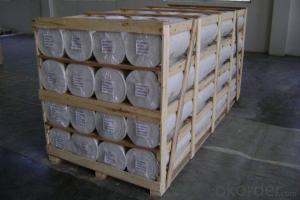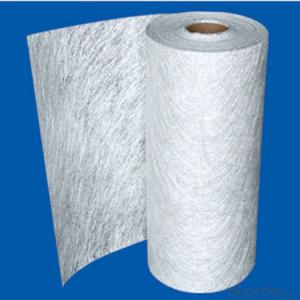Easy Operation Fiberglass Chopped Strand Mat 450g M2
- Loading Port:
- Tianjin
- Payment Terms:
- TT OR LC
- Min Order Qty:
- 100 m.t.
- Supply Capability:
- 10000 m.t./month
OKorder Service Pledge
OKorder Financial Service
You Might Also Like
Quick Details
| Technique: | Chopped Strand Fiberglass Mat (CSM) | Dimensions: | 80g - 900g | Mat Type: | Continuous Filament Mat |
| Fiberglass Type: | E-Glass | Softness: | soft, very soft | Place of Origin: | Shandong, China (Mainland) |
| Brand Name: | cnbm | Model Number: | CSM | material: | fiberglass |
| Glass type: | E glass / C glass | Bond type: | powder or emulsion | Roll width: | 200 - 2600mm |
| Roll weight: | 28 - 55kgs | Density: | 225g/m2, 300g/m2, 450g/m2 | Certification: | ISO, CE |
Packaging & Delivery
| Packaging Details: | standand export packing . or packed as customer's need |
| Delivery Detail: | 10-20days after the contract is effective |
Specifications
Fiberglass Chopped Strand Mat
1.good combination fo resin
2.easy operation
3.good wet strength retention
Specification:
Fiberglass Chopped Strand Mat is an non-woven E- or C-glass fiberglass fabric manufactured by spreading continuous filament rovings of 50mm in length randomly and uniformly in combination with polyester binder in power form (or other binder in emulsion form). Powder or Emulsion fiberglass fiber chopped glass mat
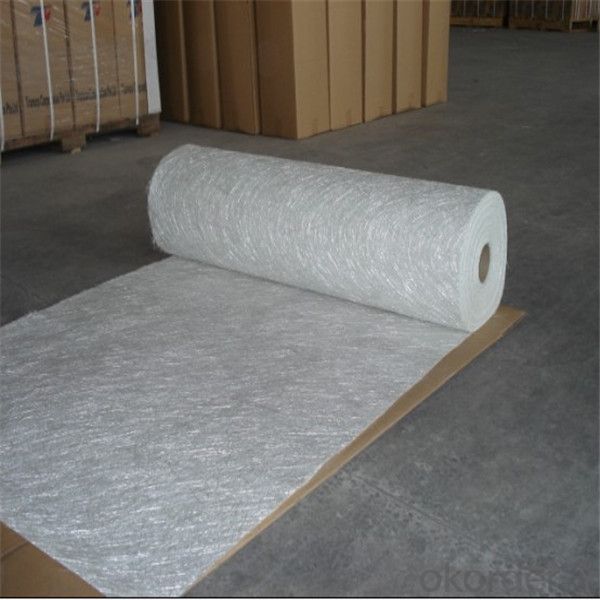
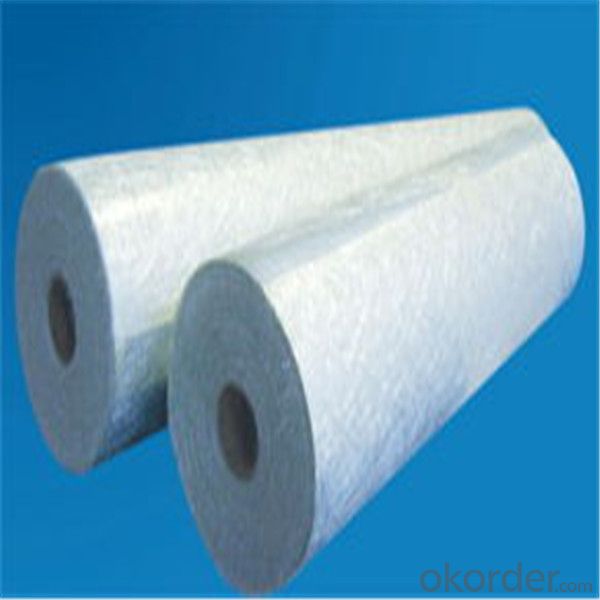
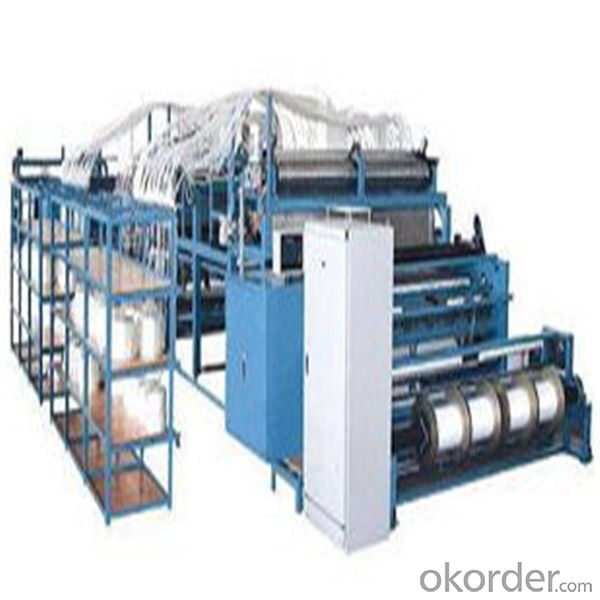
- Q: Can fiberglass chopped strand be used in filtration applications?
- Yes, fiberglass chopped strand can be used in filtration applications. Fiberglass chopped strand is made up of small fibers that are randomly oriented and bound together. This creates a three-dimensional structure with high surface area, which is ideal for filtration purposes. The fibers can effectively trap and remove particles, contaminants, and impurities from a fluid or gas stream. Fiberglass chopped strand can be used in various filtration applications such as air filters, water filters, oil filters, and chemical filters. Its high mechanical strength, chemical resistance, and thermal stability make it suitable for demanding filtration requirements. Additionally, fiberglass chopped strand can be easily molded or formed into different shapes or sizes, allowing for customization and compatibility with different filtration systems.
- Q: Can fiberglass chopped strand be used in the production of automotive body parts?
- Yes, fiberglass chopped strand can be used in the production of automotive body parts. Fiberglass chopped strand is a type of reinforcement material that consists of small strands of glass fibers. These fibers are randomly chopped into shorter lengths and then mixed with a resin or other binding material to form a composite. This composite can be molded into various shapes to create automotive body parts such as hoods, fenders, and bumpers. Fiberglass chopped strand offers several advantages for automotive applications. Firstly, it has high strength-to-weight ratio, which means it provides excellent strength and rigidity while being lightweight. This is particularly important for automotive body parts as it helps to reduce the overall weight of the vehicle, resulting in improved fuel efficiency and performance. Additionally, fiberglass chopped strand is known for its impact resistance and durability. It can withstand heavy loads, shocks, and vibrations, making it suitable for withstanding the harsh conditions that automotive body parts often encounter. It also has good corrosion resistance, which is important for automotive applications where the parts may be exposed to moisture, chemicals, and other corrosive elements. Furthermore, fiberglass chopped strand can be easily molded into complex shapes, allowing for greater design flexibility in the production of automotive body parts. It can also be easily repaired if any damages occur. Overall, fiberglass chopped strand is a versatile and reliable material that can be effectively used in the production of automotive body parts. Its strength, durability, lightweight properties, and design flexibility make it a popular choice in the automotive industry.
- Q: Two-way stretch plastic geogrid
- High-intensity Geonet, Geotextile, Uniaxial Plastic Geogrid, Steel-plastic composite Geogrid, Composite geomembrane, and two double to the grid line, Maree Modoo axial loom, Fiberglass geogrid, Polyester geogrid, Geonet, two one-way grille production line, Dornier loom.
- Q: How is the surface roughness of fiberglass chopped strand measured?
- The surface roughness of fiberglass chopped strand is typically measured using a profilometer. A profilometer is a device that measures the height variations of a surface by running a stylus or a laser probe over it. The stylus or laser probe moves across the surface in a controlled manner and records the vertical displacement of the surface at multiple points along the path. The data collected is then used to generate a profile of the surface roughness. In the case of fiberglass chopped strand, the profilometer is used to measure the roughness of the individual glass fibers. The chopped strand is placed on a flat surface, and the stylus or laser probe is moved over the fibers to measure their height variations. The measurements are typically taken at multiple points along the length of the fibers to get an accurate representation of the surface roughness. The surface roughness of fiberglass chopped strand is often expressed in terms of Ra, which is the arithmetic average of the absolute values of the measured surface height deviations. Ra provides a quantitative measure of the roughness of the surface and is commonly used in the industry to compare different materials or manufacturing processes. By measuring the surface roughness of fiberglass chopped strand, manufacturers can ensure that the quality of their product meets the required standards. It also helps to determine the suitability of the fiberglass for specific applications where surface roughness may be a critical factor, such as in composite materials or reinforcement in various industries.
- Q: How does the weight of the chopped strand affect its performance?
- The weight of the chopped strand directly affects its performance. A heavier chopped strand usually indicates a higher amount of fiber content, which can enhance the strength and stiffness of the composite material. However, an excessively heavy chopped strand can lead to difficulties in processing and may result in uneven dispersion within the matrix. On the other hand, a lighter chopped strand may compromise the mechanical properties of the composite, reducing its strength and durability. Therefore, finding the right balance between weight and fiber content is crucial to optimize the performance of the chopped strand in composite materials.
- Q: Can fiberglass chopped strand be used in sporting goods applications?
- Yes, fiberglass chopped strand can be used in sporting goods applications. It is commonly used to reinforce various components in sporting goods such as hockey sticks, tennis rackets, golf clubs, and even surfboards. The fiberglass adds strength and durability to these products, making them more suitable for rigorous use.
- Q: How does the fiber-matrix interfacial shear strength of fiberglass chopped strand affect the performance of composites?
- The fiber-matrix interfacial shear strength of fiberglass chopped strand plays a crucial role in determining the performance of composites. This parameter refers to the strength of the bond between the fiberglass fibers and the matrix material in a composite. The interfacial shear strength directly affects the load transfer capability between the fibers and the matrix. A higher interfacial shear strength means a stronger bond between the fibers and the matrix, resulting in better load transfer and improved mechanical properties of the composite. When the interfacial shear strength is high, it allows for efficient stress transfer between the fibers and the matrix during loading, resulting in enhanced strength, stiffness, and overall performance of the composite material. This is particularly important in applications where the composite is subjected to high mechanical loads or structural stresses. On the other hand, a weak or low interfacial shear strength can lead to poor load transfer, resulting in reduced performance of the composite. In such cases, the fibers may not effectively reinforce the matrix, leading to premature failure, decreased strength, and lower overall mechanical properties. The interfacial shear strength also influences other properties of composites, such as fatigue resistance, impact resistance, and dimensional stability. A strong fiber-matrix bond improves the resistance of the composite to fatigue, preventing the initiation and propagation of cracks under cyclic loading. Additionally, a high interfacial shear strength helps to absorb and dissipate energy during impact events, enhancing the impact resistance of the composite. Moreover, the interfacial shear strength affects the dimensional stability of composites. A strong bond between the fibers and the matrix helps to minimize the occurrence of microcracks and debonding at the interface, reducing the potential for moisture absorption, creep, and dimensional changes over time. In summary, the fiber-matrix interfacial shear strength of fiberglass chopped strand significantly impacts the performance of composites. A strong bond between the fibers and the matrix enhances load transfer, improving mechanical properties, fatigue resistance, impact resistance, and dimensional stability. Therefore, optimizing and controlling the interfacial shear strength is crucial for designing and manufacturing high-performance fiberglass composite materials.
- Q: Can fiberglass chopped strand be used in aerospace composites?
- Aerospace composites can indeed make use of fiberglass chopped strand. Widely utilized in various industries, including aerospace, fiberglass chopped strand is a common material for reinforcement. Its strengths lie in its exceptional strength-to-weight ratio, chemical resistance, and thermal stability, making it a suitable choice for aerospace applications that demand lightweight and high-performance materials. Within the aerospace industry, fiberglass chopped strand finds its uses in the production of panels, fairings, interior parts, and structural elements. It can be combined with other reinforcement materials, such as carbon fibers, to further enhance the overall properties of the composite. However, it is crucial to consider the specific requirements and regulations of each aerospace project when selecting the appropriate reinforcement material.
- Q: What are the fatigue strength properties of fiberglass chopped strand?
- The ability of fiberglass chopped strand to endure repeated loading and unloading cycles without failing or deteriorating is what is referred to as its fatigue strength properties. Fiberglass chopped strand is commonly utilized in different fields where durability and resistance to fatigue are crucial, such as the automotive industry, construction, and marine applications. Several factors influence the fatigue strength of fiberglass chopped strand, including the quality of the resin matrix used to bind the strands, the length and orientation of the strands, and the overall quality of the manufacturing process. When manufactured and processed correctly, fiberglass chopped strand can display excellent fatigue strength properties. Fiberglass chopped strand typically exhibits a long fatigue life, allowing it to endure thousands or even millions of loading cycles without failing. This is because of the inherent properties of fiberglass, such as its high tensile strength and stiffness, which effectively distribute and absorb stress throughout the material. Moreover, the orientation of the chopped strands significantly impacts the fatigue strength properties. When the strands are randomly oriented, the fatigue resistance may be lower compared to aligned or continuous fibers. Nonetheless, the use of advanced manufacturing techniques, like controlled fiber alignment or weaving, can enhance the fatigue strength properties of fiberglass chopped strand. It's important to consider that various external factors, such as temperature fluctuations, exposure to chemicals, and environmental conditions, can influence the fatigue strength of fiberglass chopped strand. These factors can potentially degrade the material over time, reducing its fatigue resistance. In conclusion, fiberglass chopped strand is renowned for its excellent fatigue strength properties when properly manufactured and processed. It provides a durable and reliable material choice for applications that require resistance to cyclic loading, making it a popular option in industries where fatigue resistance is essential.
- Q: Can fiberglass chopped strand be used in reinforcing concrete?
- Yes, fiberglass chopped strand can be used in reinforcing concrete. It helps to improve the overall strength, durability, and crack resistance of the concrete. Additionally, the lightweight and corrosion-resistant properties of fiberglass make it an ideal choice for concrete reinforcement.
Send your message to us
Easy Operation Fiberglass Chopped Strand Mat 450g M2
- Loading Port:
- Tianjin
- Payment Terms:
- TT OR LC
- Min Order Qty:
- 100 m.t.
- Supply Capability:
- 10000 m.t./month
OKorder Service Pledge
OKorder Financial Service
Similar products
Hot products
Hot Searches
Related keywords
